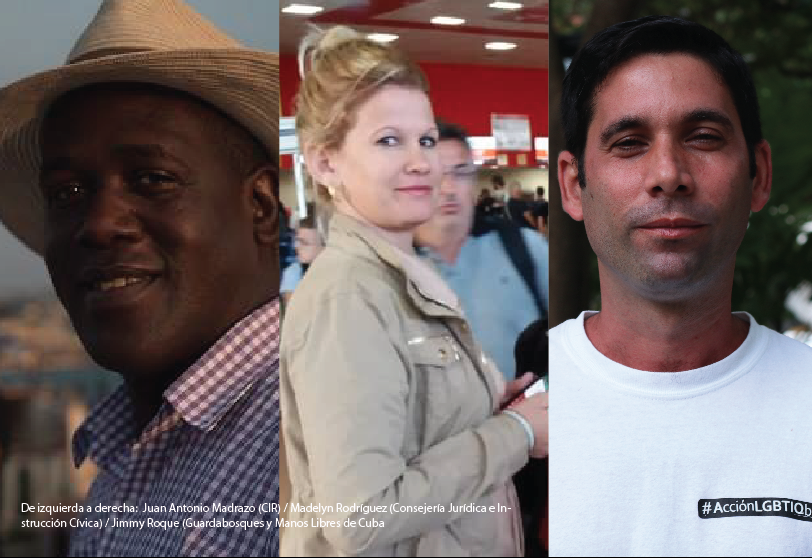Cuban government prohibits five activists from traveling to Colombia to participate in the OAS General Assembly
The International Institute on Race, Equality and Human Rights (Race and Equality) condemns the decision by Cuban authorities to refuse to allow five activists and human rights defenders to leave […]

The International Institute on Race, Equality and Human Rights (Race and Equality) condemns the decision by Cuban authorities to refuse to allow five activists and human rights defenders to leave the country and take part in the organization’s activities during the 49th General Assembly of the Organization of the American States, which is entitled “Innovating to strengthen hemispheric multilateralism” and takes place in Medellín, Colombia June 25-28.
On the morning of Monday, June 24, Maricel Napoles and Ileana Colas, activists from the organization Mujeres Esperanza in Santiago, were informed by migration authorities that they had been “regulated;” when questioned by the activists, an official claimed that migration agents “do not make or repeal the rules, that it must have been some minister,” and that they “could travel that same day if the problem is resolved.”
For his part, Juan Antonio Madrazo, activist and director of the organization Comité Ciudadanos por la Integración Racial was met at home by an army officer who called himself “Alejandro” and informed Madrazo that he could not travel, stating that he “must stay in his home, and that there would be no traveling to Colombia for the General Assembly for him, nor for others.” This is the third time that the activist and human rights defender has been blocked from leaving Cuba to attend one of Race and Equality’s activities this year.
Meanwhile, the activist Jimmy Roque from the organization Guardabosques and the LGTBI organization Proyecto Arcoíris was informed at the airport by migration authorities that he was not allowed to leave the country because he was currently “regulated.” It is notable that Roque was also detained for 24 hours on May 11th of this year to prevent him from participating in Cuba’s unofficial LGBTI Pride parade. This is the second time that he has been prohibited from leaving the country.
Finally, the activist Madelyn Rodríguez, member of the Consejería Jurídica e Instrucción Cívica in Pinar Del Río, having already passed through airport security, was informed at the migration checkpoint that she was regulated and that “she could not travel, at least not today.” Upon being questioned, the migration official indicated that the airport staff “only carried out decisions and therefore did not know why Rodríguez was restricted.” However, the staff also stated that it was due to the General Assembly that she could not exit.
These activists and human rights defenders had been invited by Race and Equality to participate in the Inter-American Forum against Discrimination, a space of dialogue and reflection within the General Assembly featuring Epsy Campbell, the vice-president of Costa Rica, and Commissioner Margarette May Macaulay, Special Rapporteur on the Rights of Afro-descendent Persons & Against Racial Discrimination and on the Rights of Women. Furthermore, the activists planned to take part in dialogues with OAS Secretary General Luis Almagro and with the region’s Ministers of Foreign Affairs.
Although the Cuban government is suspended from the OAS, independent civil society can participate in the organization’s activities. Such participation is a legitimate exercise of their rights.
Race and Equality recently finalized an analysis of Cuba’s justice system, finding that the Cuban government utilizes “regulations” on human rights activity to prevent rights defenders from leaving the country, with the goal of preventing them from reporting rights violations in international arenas.
In keeping with Race and Equality’s commitment to the defense and promotion of human rights, we will continue supporting Cuba’s independent civil society in demanding their rights and continue calling for the Cuban government’s compliance with its human rights obligations.

